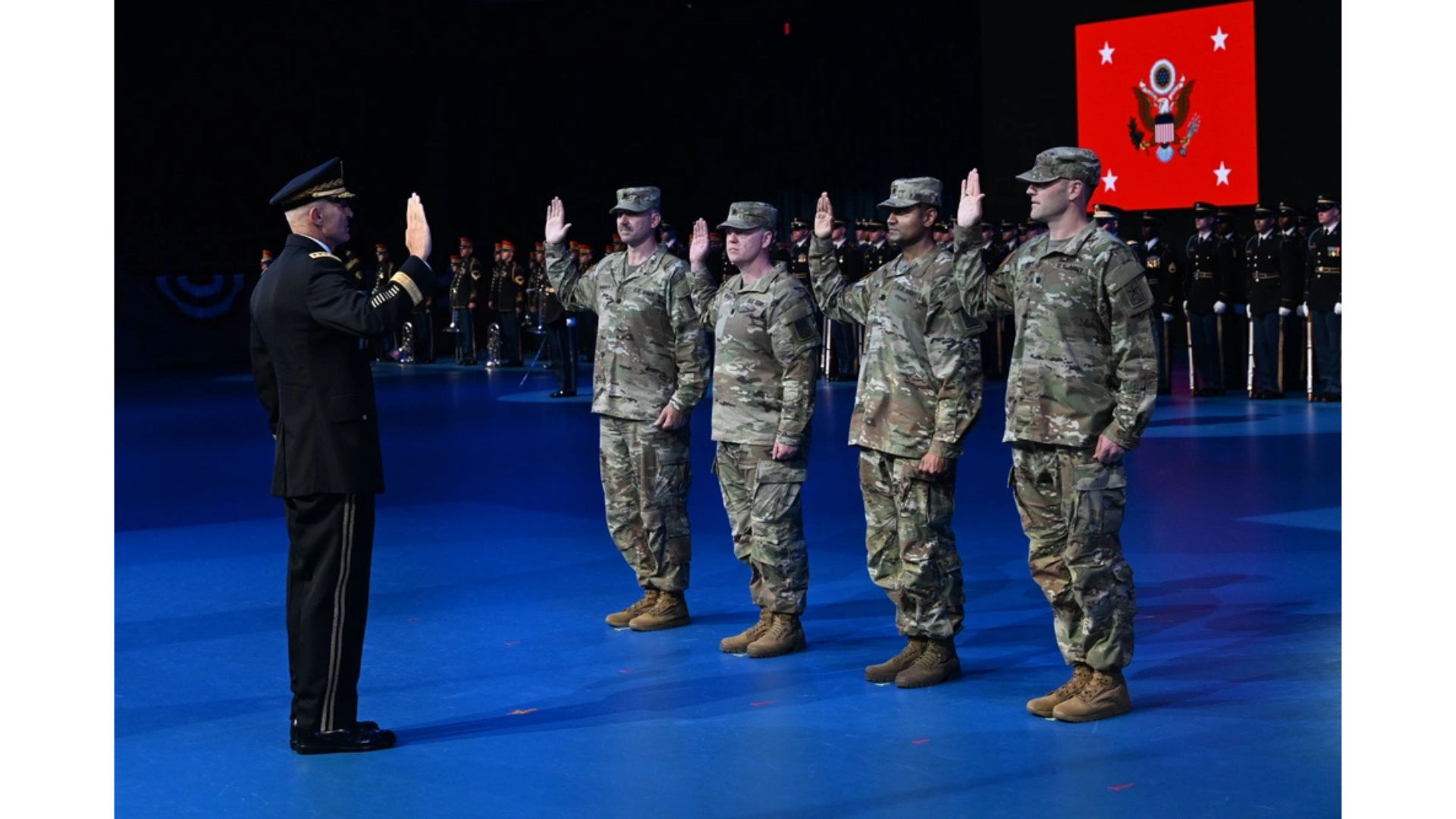The United States Army has officially launched “Detachment 201,” a first-of-its-kind partnership with executives from Big Tech firms Palantir, Meta, and OpenAI.
The day before Donald Trump’s 250th anniversary parade for the U.S. Army, the Army swore in four Silicon Valley executives as Army Reserve lieutenant colonels as part of their new “Detachment 201: The Army’s Executive Innovation Corps.” The Army said the program was “designed to fuse cutting-edge tech expertise with military innovation.”
The new Army Reserve lieutenant colonels are Shyam Sankar, chief technology officer for Palantir; Andrew Bosworth, chief technology officer for Meta; Kevin Weil, chief product officer for OpenAI; and Bob McGrew, advisor at Thinking Machines Lab and former chief research officer for OpenAI.
The rank of lieutenant colonel is generally awarded to officers in their second decade of military service. The position typically commands between several hundred soldiers, but the tech executives are not expected to command traditional formations.
The Army has said Detachment 201 is focused on recruiting Big Tech executives to serve part-time in the Army Reserve as advisors on “targeted projects” to help “guide rapid and scalable tech solutions to complex problems.” Detachment 201 is itself part of a broader effort known as the Army Transformation Initiative, which seeks to make the Army “leaner, smarter, and more lethal.”
Col. Dave Butler said the four executives will receive two weeks of online and in-person training at Fort Benning, Georgia. Their training will focus on physical fitness, marksmanship, and basic soldier tasks. They will not participate in the Army’s traditional full six-week Direct Commissioning Course at Fort Benning.
While Andrew Bosworth claimed 201 was a reference to an HTTP coding command that indicates the creation of a new programming resource, the name is reminiscent of Event 201, the October 2019 exercise that simulated how the world would respond if a coronavirus pandemic swept the planet. That simulation was organized by the Bill and Melinda Gates Foundation, the Johns Hopkins Center for Health Security, and the World Economic Forum.
The announcement of Detachment 201 and the swearing-in of the four executives came during the 2025 meeting of the secretive Bilderberg Group in Stockholm, Sweden. Interestingly, the annual meeting of heads of state, Big Tech executives, leaders of military-industrial complex firms, and minions of the banking class was chaired by a steering committee that included Peter Thiel and Alex Karp, both co-founders of Palantir.
This year’s meeting featured Michael Kratsios, the director of the White House Office of Science and Technology Policy and an acolyte of Peter Thiel. Other Big Tech executives who attended the Stockholm meeting include Satya Nadella, CEO of Microsoft, and Mustafa Suleyman, CEO of Microsoft AI.
Brian Schimpf, co-founder and CEO of Anduril Industries—another Peter Thiel-funded project— was also present in Stockholm. Anduril and Meta recently announced a partnership with the U.S. military on augmented and virtual reality. Andrew Bosworth, one of the newly minted Army Reserve lieutenant colonels, said U.S. national security would benefit “enormously from American industry bringing these technologies to life.”
Taken together, the announcement of Detachment 201, the augmented and virtual reality partnership between the U.S. military, Meta, and Anduril, and the presence of these companies at Bilderberg represent the latest step in the merger of Big Tech and the military. This is yet another step toward a Technocratic State where the engineers guide the futures of nation-states and their largely ignorant populations.
If we are to have any hope of living freely outside of these techno-feudalist slavery systems, we must take steps to extricate ourselves from the digital gulag and opt out before it’s too late.







